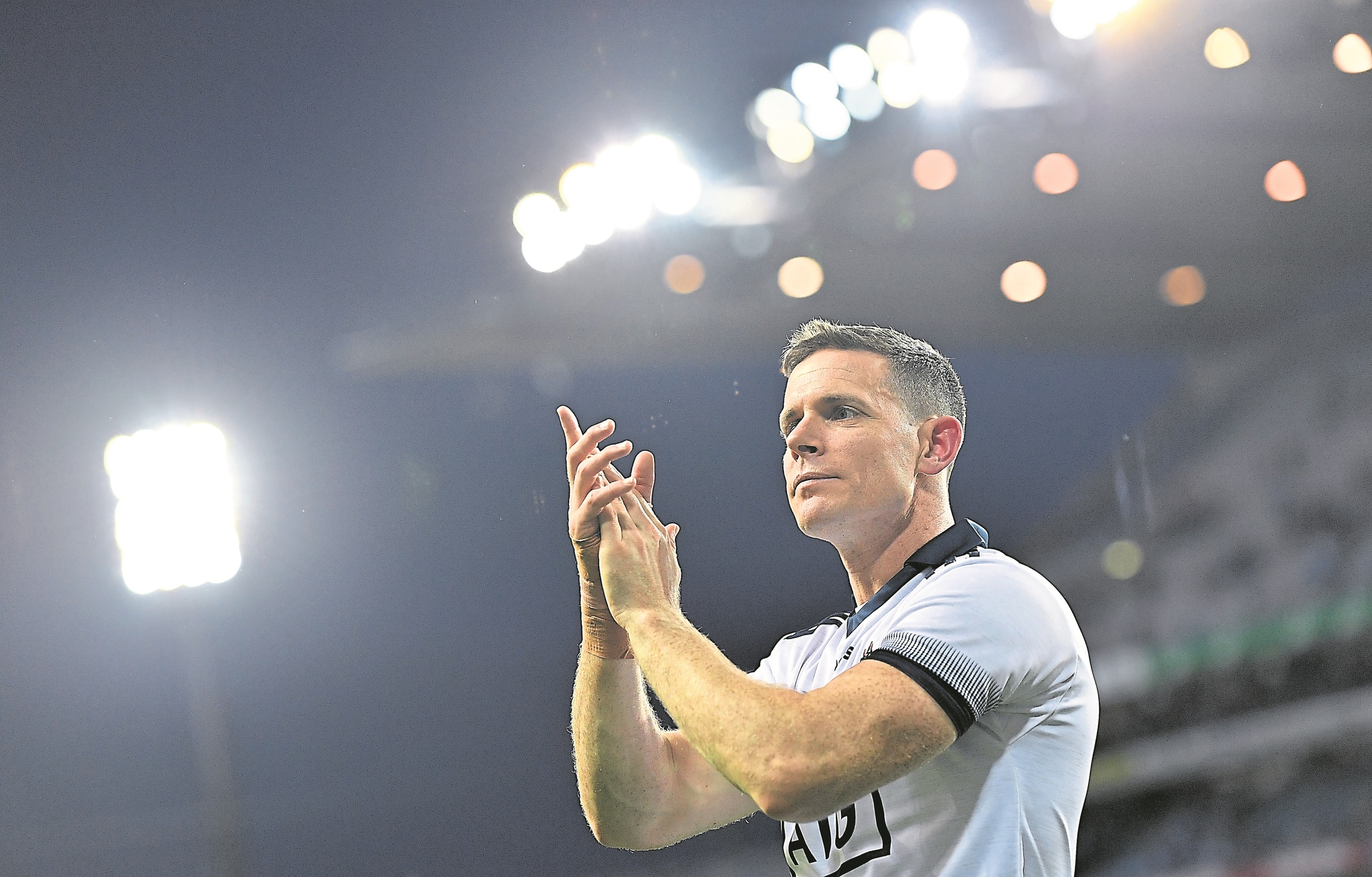By Patrick Morrison
IN 2015, my first year with the Armagh team, we played a challenge game against Dublin down in the DCU sports complex.
This was the first year of their five-in-a-row dominance. We had started with a strong team with a handful of our regular starters rested. Dublin on the other hand, had a good portion of their starting 15 rested for the beginning of the game.
One man that did not play any part in the game at all was Stephen Cluxton. As the warm-ups finished and the game was about to be thrown in, those who were not involved with the game exited to another pitch for an extended warm-up. Cluxton and his goalkeeping coach, however, separated from this group and set up for their own session at the far end of the adjacent pitch.
Hailed as the number one goalkeeper in the game, I watched intently wanting to pick up anything that could help me improve in my own goalkeeping ability. His one-to-one session lasted for the full game which was three periods of 20 minutes each.
During this session, Cluxton and his coach worked on a variety of different skills from one-on-ones to reaction shots to kicking. One aspect that I did notice throughout his session was it appeared to be more technical in nature and involved a lot of discussion time between him and his coach. Each drill he completed focused more on the stages of the skills rather than their performance.
This type of one-to-one coaching is essential for the development of any goalkeeper.
Whenever a one-to-one session is conducted in this fashion it means more time is spent focusing on the specific areas of the goalkeeper’s game that either need worked on or fine-tuned to optimise their potential.
Focusing on the techniques of the goalkeeper is very important during these types of sessions i.e. – kicking technique, diving technique, positioning, catching, leaping running with/without the ball etc – they all need to be looked at in their various micro-skills to ensure the goalkeeper develops.
These one-to-one sessions are not just about putting the goalkeeper through a number of game related training drills, they are a time to perfect the skills and techniques they already have as well as a time to learn new skills (skills acquisition) to better their performance (using other foot).
A productive and well-prepared one-to-one session is more than just another training session for both coach and goalkeeper. The session affords the goalkeeping coach some high-quality contact time with their goalkeeper on an individual basis.
It is this quality time that allows the coach to hone in on any imperfections and correct them for better competition performance. It is this technique correction of the overall skill by focusing on them in their various stages (micro skills). By improving the ‘keeper’s performance in these micro skills the goalkeeper then improves the overall skill and improves their overall performance.
It is also important for the coach to become more than a goalkeeping coach in these sessions as they will look to assess more than the goalkeeping ability of their ‘keeper.
The coach quietly assesses the psychological aspects of their goalkeepers by looking at their off-field lifestyles (diet, rest/sleep, nutrition, hydration, recovery), non-football relationships (family, friends, girlfriends, boyfriends), occupations (school, college, university, work) and football relationships (management, players, coaching staff, administrative personnel).
The coach will also discuss with their goalkeeper what aims/goals they have set themselves for the season/year and they will then collectively form an action plan to ensure these goals are met within the required timeframe.
From the goalkeeper’s viewpoint, it is important that they come to these one-to-one sessions fully focused and understand that any changes will take more than the one session and may involve additional work by the goalkeeper in their own time. For this to happen, the goalkeeper must be open to learn, unlearn and relearn all and any parts of their game.
There are three things that the goalkeeper must do in regard to these sessions: 1) Take note of all coaching points into their training diary. 2) Work on the coaching points in their own time. 3) Liaise with their goalkeeping coach about any developments or issues they may have encountered.
There are six essential elements for any one-to-one session to have for it to be successful:
1) Planning – the session must be planned effectively and make provisions for possible interruptions and unseen events.
2) Structure – a good one-to-one session will have clear and detailed compartments, so the goalkeeper knows they have moved onto the next part of the session.
3) Focus – every one-to-one session needs to have a focus to allow the goalkeeper to understand what exactly it is they are working to improve.
4) Discussion – allocated time for the goalkeeper and coach to discuss what they are doing during the session is essential for the ‘keeper’s development.
5) Purpose – these sessions need a purpose so that the goalkeeper can have an understanding as to why they are doing the session and an outcome can be seen.
6) Recorded – each session needs to be recorded by both the goalkeeper and also the coach for future reference.
I am confident that the one-to-one session that Stephen Cluxton had with his coach back in 2015 was not the only one he had during that year. To be the best takes an insatiable amount of hard work to reach the top and the same amount again to stay there.
It is important to ensure that the one-to-one sessions with your goalkeepers are continuous throughout the year as they are typical a personal training session for the goalkeeper.
They are a perfect time to conduct some skill acquisition and/or technique correction because the basis of all goalkeeper development comes from these one-to-one technical sessions.
Without these one-to-one goalkeeping sessions, the speed at which the goalkeeper develops is reduced and may even stagnate or worse regress. This is why coaching your goalkeepers in a one-to-one setting is an essential practice.
Receive quality journalism wherever you are, on any device. Keep up to date from the comfort of your own home with a digital subscription.
Any time | Any place | Anywhere















